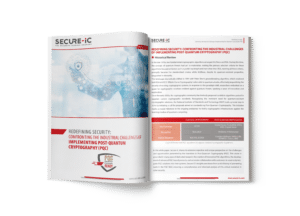NIST Releases First 3 Finalized Post-Quantum Cryptography Standards

The National Institute of Standards and Technology (NIST) recently unveiled a finalized set of Post-Quantum Cryptography (PQC) standards, designed to withstand future attacks from quantum computers. These algorithms are essential for securing sensitive data, such as confidential emails and online transactions, in the face of rapid advances in this emerging technology. NIST urges system administrators to start integrating these new standards now, a process that will take time but is crucial to ensuring information security in a post-quantum world.
The standards include three Post-Quantum cryptographic algorithms: ML-KEM (originally known as CRYSTALS-Kyber), ML-DSA (originally CRYSTALS-Dilithium) and SLH-DSA (initially submitted as SPHINCS+).
These new standards mark a key milestone in NIST’s ongoing efforts to anticipate and counter the threats associated with quantum computing. While the development of quantum computers could jeopardize current cryptographic methods, the algorithms finalized by NIST are designed to resist these potential attacks. In addition, NIST is continuing to evaluate other algorithms that could serve as backup standards in the future, ensuring continued and enhanced protection of digital data in the years to come.
Download our Post-Quantum Cryptography (PQC) White Paper

